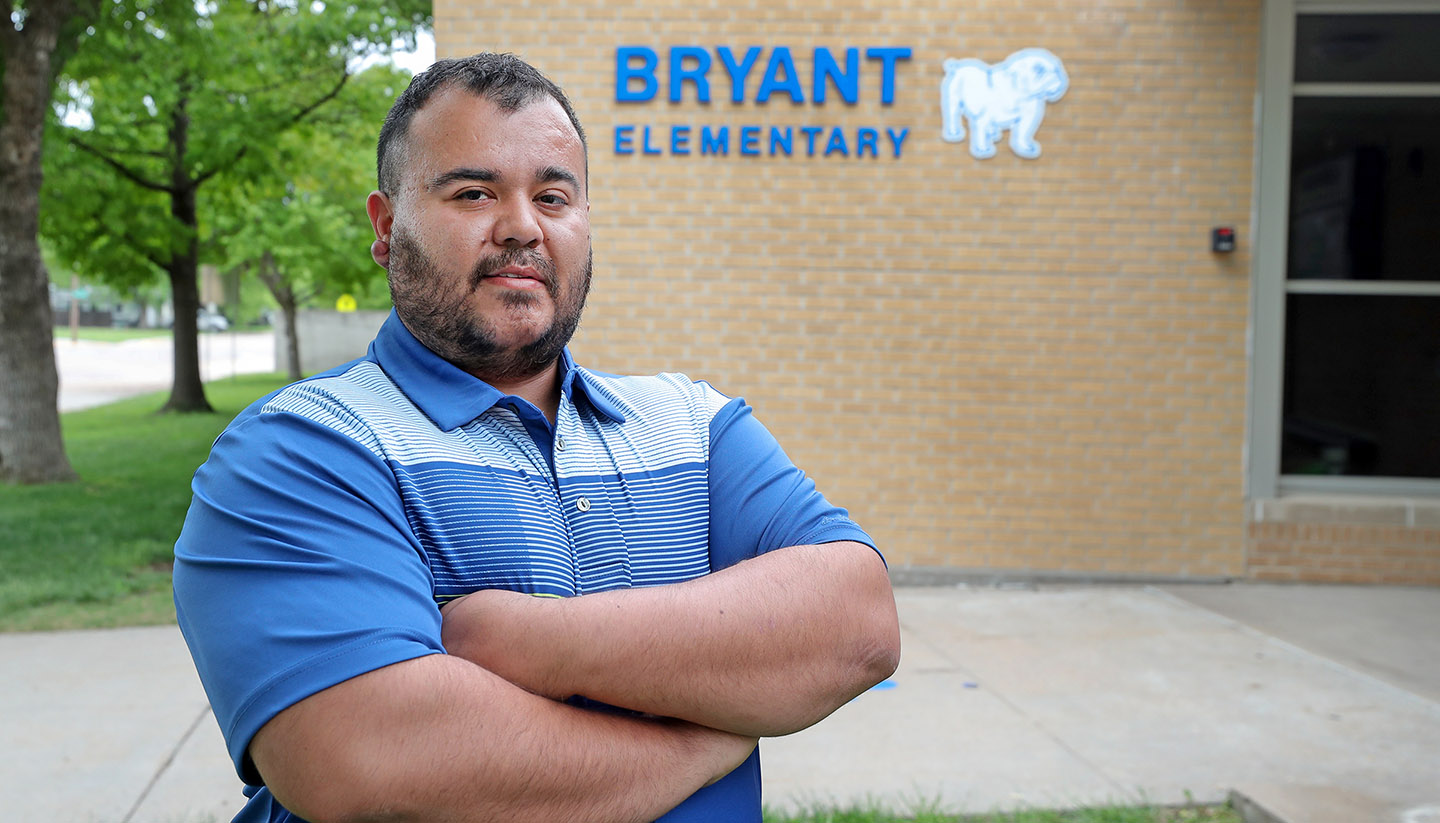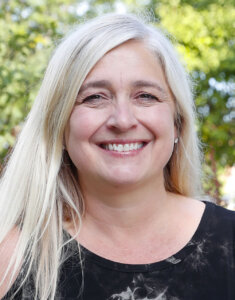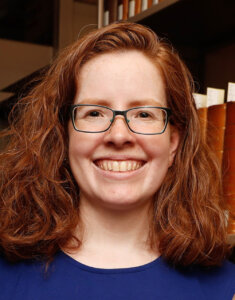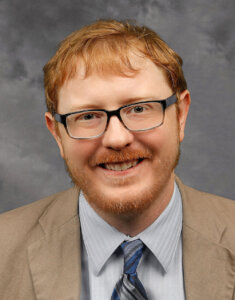By TYLER ELLYSON
UNK Communications
KEARNEY – Carlos Ortega and his family didn’t come to the United States to sell drugs.
They aren’t here to “steal” jobs from hardworking Americans or to leech off the federal benefits system.
“We came here so we can be safe and build a better future,” said Ortega, who was 9 years old when his family left their home in Chihuahua, Mexico.
“We’re just trying to live. That’s all we’re trying to do.”
Ortega is one of 20 people whose stories are featured in “Coming to the Plains,” an oral history project that examines immigration through the eyes of Latin Americans who settled in central Nebraska.
Inspired by the state’s “complicated relationship with immigration,” University of Nebraska at Kearney faculty members Michelle Warren, Laurinda Weisse and Jacob Rosdail launched the project in 2017 as a way to share the lived experiences of these community members and spread empathy by attaching human faces to the immigration debate.
“In a broad sense, we’re hoping this project will help people reconsider some of the preconceived notions they might have regarding immigration or immigrants,” said Weisse, an associate professor who serves as the university archivist and digital repository manager.
By shining a spotlight on these individuals, the UNK researchers hope to dispel common myths and stereotypes while highlighting the important contributions immigrants make in central Nebraska and starting a dialogue that leads to increased cultural awareness.
Assisted by numerous UNK students – many from immigrant families – the project team interviewed 20 people from Mexico, El Salvador, Honduras, Colombia, Guatemala and the Dominican Republic who now live in the Tri-Cities area.
The participants come from all walks of life, but they share a common background.
“People don’t usually relocate unless they have a forced reason,” said Warren, an associate Spanish professor and graduate program chair in UNK’s Department of Modern Languages. “We had at least three participants talk about violence and dead bodies as a daily occurrence.”

PAY IT FORWARD
Ortega grew up around violence back in Mexico.
The community where he lived was infiltrated by drug cartels and gang members who took control of what was once a “pretty nice town.” It wasn’t safe to be outside after dark and businesses were forced to pay “protection money” to operate.
“Anybody who had a business, they would start taking money from them,” said Ortega, whose parents’ store was robbed multiple times.
“It was in our best interest to just get out of there.”
After going through the lengthy process to acquire passports and visas, Ortega, his parents and two siblings emigrated from Mexico in 2001. They spent five years in Colorado before relocating to Nebraska, where Ortega graduated from high school and attended Central Community College. He’s currently a senior at UNK studying Spanish and English as a second language.
Ortega didn’t know English when he arrived in the U.S., and now he works as a paraprofessional in the ESL program at Bryant Elementary School in Kearney. The 29-year-old wants to teach in a high school ESL program after graduation and provide free English classes for adults.
“I feel like I need to pay it forward,” Ortega said. “If we want to bridge that gap between immigrants and natives, we have to be able to communicate.”
SHARING THEIR STORIES
Although more than 11% of Nebraska’s population is Hispanic or Latino – double the figure from 20 years ago – these residents continue to face discrimination.
“It’s hard for people to be open-minded about something if they have no experience, if they’re not aware of the issues,” Ortega said.
That’s why “Coming to the Plains” is so important. Warren, Weisse and Rosdail, an associate professor of communication, give immigrants a voice through their project, which is funded by UNK’s Research Services Council, the University of Nebraska Collaboration Initiative, Nebraska Arts Council and Humanities Nebraska.
The video-recorded interviews detailing each participant’s journey will be shared in multiple ways.
A traveling exhibit featuring a video installation and banner display debuted last month at The World Theatre in downtown Kearney and is currently on display at UNK’s Calvin T. Ryan Library. The project team hopes to bring the exhibit to communities across Nebraska, as well as other colleges and universities. Doane University and the University of Nebraska at Omaha have already signed on as host sites.
There’s a “Coming to the Plains” website, and all of the interviews will be stored on UNK’s digital repository in both English and Spanish.
“We really want people to be able to see these stories so we can create a better understanding of our immigrant communities,” Weisse said.
The UNK researchers’ current work focuses on identifying and addressing the needs of immigrants in central Nebraska.
They teamed up with associate professor Ben Malczyk, director of UNK’s social work program, and community organizations in the area to create and distribute a survey that will be used to identify high-need areas such as language training, health care and social services. Long-term solutions will be developed using additional grant funding.
“We’re hoping to create homegrown professionals who are able to work directly with the Spanish-speaking community,” said Warren, referencing a Spanish certificate program UNK is developing to accompany other degrees.
“This project won’t end here,” she added.
HOST THE EXHIBIT
If you’re interested in hosting the “Coming to the Plains” exhibit, contact Michelle Warren at 308-865-8439 or warrenm2@unk.edu.


